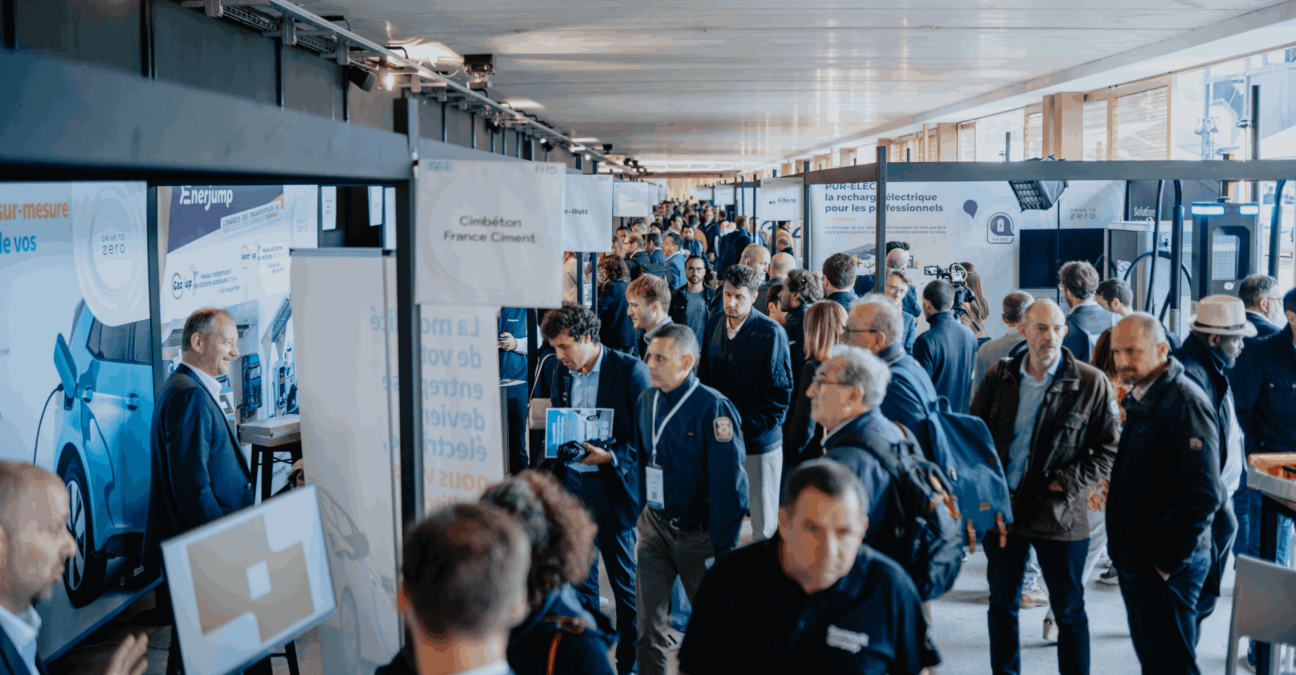Drive to Zero, the European place for carbon-free mobility, brought together private and public sector players over 2 days to work together on strategies and solutions to meet the challenges of deploying carbon-free mobility in all types of areas and for all types of organisation. Between demonstrations, tests and debates, the event welcomed more than 4,000 professionals who came to discover 141 exhibitors (+40% compared to 2023) and listen to the 140 experts involved. A real buzz of exchanges in a new setting that has been acclaimed by participants since the early hours of the morning.
Decarbonised mobility: identified obstacles and a shared commitment
“ What emerges from the many discussions over the last two days is that when a mobility offer is adapted, users take to it very quickly. And if decarbonised mobility has been slowed down, it cannot be prevented. Solutions are being developed and the means of implementing them are becoming increasingly clear. So we’re looking forward to another great event next year! “ says Stéphanie Gay-Torrente, Director of Drive To Zero.
As a nascent ecosystem, the event brings together all the players involved in decarbonising mobility to work together to meet the challenges related to goods mobility, people mobility, rethinking infrastructure, energy consumption and skills development. Numerous decisions were taken along these lines by the players and professionals present at the business meetings and the memorable Grande Soirée organised on site.
Public authorities, local authorities, associations, industrialists and professionals in charge of planning, infrastructure, vehicles, energy, mobility services, active mobility, etc. all share the need for a collective approach to the resources that will have to be adapted to users and regional diversity.
For its second edition, Drive To Zero wanted to broaden the debate across the divide. Highly acclaimed for its programme of conferences packed with debate, covering all the multimodal means of transport, their limitations, and their current and future interoperability, Drive To Zero covered the cross-cutting themes of acceptability, governance and financing, while also addressing the technological dimension and industrial opportunities.
A large number of the 141 exhibitors present at the event offered practical and operational workshops and conferences, proposing concrete solutions to all the types of territories and organisations, in a spirit of collective intelligence.
The Drive To Zero Innovation Awards, which reward initiatives less than a year old, highlighted both high-tech and low-tech innovative solutions ! First awards dedicated to innovative products and projects for zero-carbon mobility, they rewarded 1 winner and 3 runners-up in 7 categories, selected by a panel of experts made up of the event’s institutional partners, all of whom are committed to supporting innovation, as well as elected representatives and local authority directors. Click here to see the list of 2024 Winners.
Lastly, a large number of these projects were presented to the public during pitch sessions, showcasing some particularly innovative solutions.
“ Let’s make a date for next year: let’s meet again for another Drive To Zero, on 20 and 21 May 2025, again at the Hippodrome de Longchamp in Paris, to discover the evolution and development of this key sector, which represents a real challenge for the society and the industry.”concludes Stéphanie Gay-Torrente.

